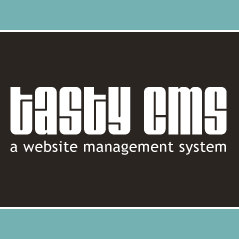Better META: When Google speaks it's important to listen
Posted on Thursday, September 24, 2009 at 11:05 AM
On September 21 Matt Cutts from Google's Search Quality Team posted a blog article that verified something that most developers have known for awhile now: Google does not use the "keywords" meta tag in its web search ranking.
For the uninitiated, meta tags are HTML elements used to provide structured metadata about a web page. In the code of the web page these elements go in the head tag. In the early days of the Internet and search engine development, meta tags were used to correctly classify a web page. Developers and so called search engine optimization (SEO) experts pushed meta tags to their limit by filling them with information that would propel their sites up higher for search results. Because these elements were designed to be used and seen only by search engines, human visitors to a web site would never see this content, the practice of "keyword stuffing" became popular.
Quickly the use of meta tags, and in particular meta keywords, became useless as the content that was entered into them devolved. People looking to game the search engine systems often filled them with information that had nothing to do with the actual content of the web page. Search engines thought the page was relevant to one thing when in reality it had to do with something completely different. Search engines, specifically Google, started to pay less and less attention to them to the point that as Mr. Cutts explains Google doesn't pay attention to meta keywords anymore. Other search engines may still use this information, but in his own words Google:
"...disregards keyword metatags completely. They simply don't have any effect in our search ranking at present."
Other meta information is still important today and Google readily admits that they use some of these other meta elements at least when it comes to displaying search results. For instance, if Google finds your meta description to be especially relevant and useful they might use it when displaying search results for your website. And of course any reputable search engine will honor the meta robots tag. This element is used to notify a search engine as to whether or not they can index a web page when they come across it. It can also used to let these engines know whether or not they are permitted to follow the links on that web page. Take a look at this page for a complete list of meta tags that Google understands.
And here's the video that Google released explaining their use, or otherwise, of some meta tags in greater detail.
With Tasty CMS we make use of the follow meta tags:
<meta name="description" content="..." />
<meta name="keywords" content="..." />
<meta name="robots" content="..., ..." />
<meta name="MSSmartTagsPreventParsing" content="TRUE" />
<meta http-equiv="Content-Type" content="text/html; charset=ISO-8859-1" />
MSSmartTagsPreventParsing is automatically set to TRUE for every web page. Microsoft's Smart Tags were a proposed feature of Windows XP that would allow Microsoft and its partners to insert their own links into any Web page viewed through its Internet Explorer browser. Setting this meta tag to TRUE prevents Internet Explorer from doing this as it's not a popular idea to allow a third party to control and select what is linked.
Content-Type defines the page's content type and character set. text/html means that the type of content being served is a web page. ISO-8859-1 means that the character enconding is Latin-1. It is generally intended for "Western European" languages such as English.
Our clients have complete control of the meta description, keywords and robots tags. Any values set for the home page will automatically be associated with every other page of the site. However, it's possible to override these values on a page-by-page basis to give specific control.
« Previous PostHave you listed your business under the Google Local Business Center? Next Post »On the Importance of Breadcrumbs
